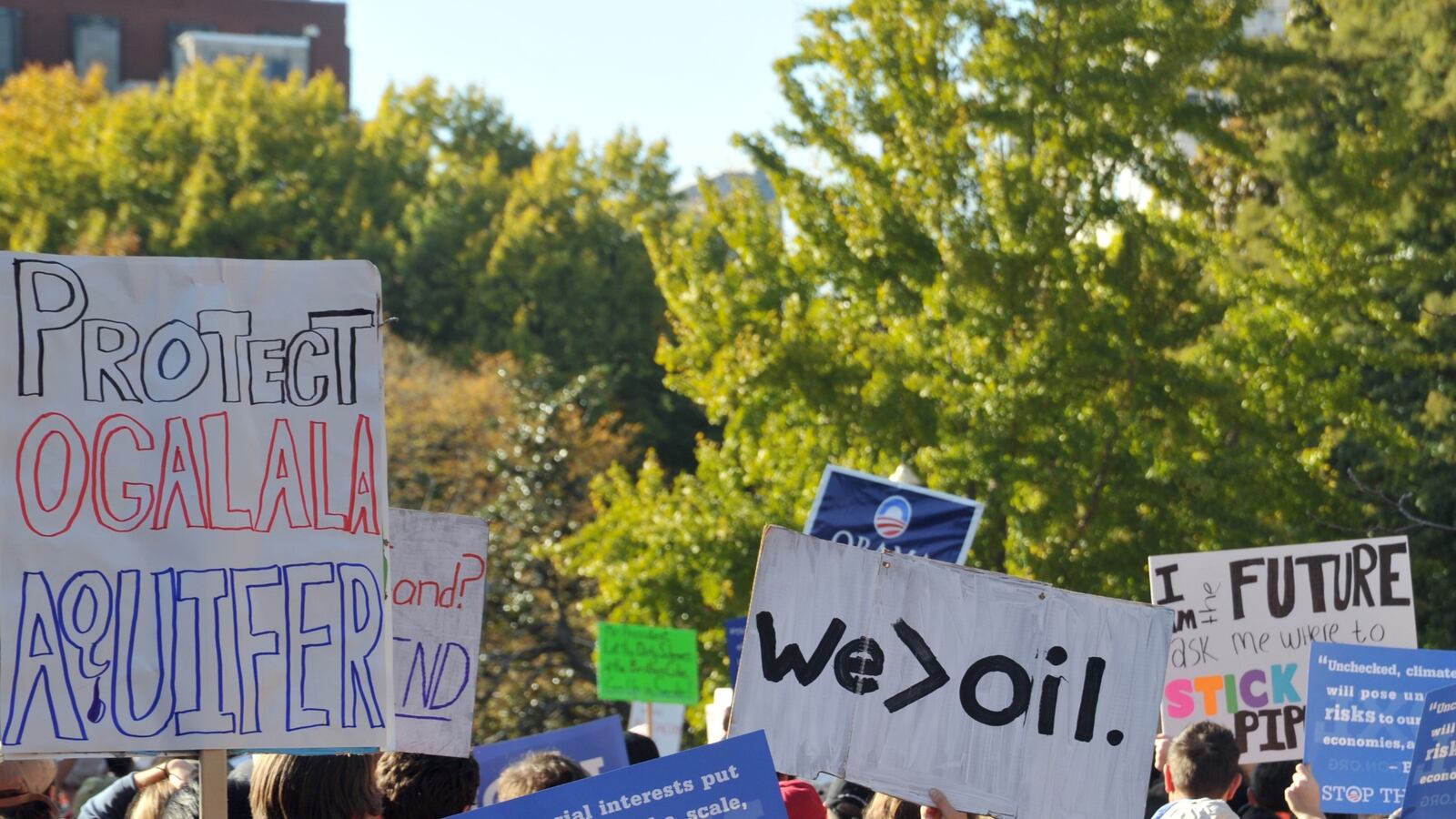
The Hill newspaper reports that business groups are stepping up the pressure on the Obama administration to approve the Keystone pipeline to carry oil from Canada to refineries in Texas:
“U.S. Chamber of Commerce President Tom Donohue plans to highlight the pipeline in his closely watched annual speech Thursday on the state of American business.
...
‘Keystone — and energy as a whole — will be a major element of Tom’s speech tomorrow,’ a spokesman for the business group said Wednesday.
...
Separately, Business Roundtable President John Engler, a former GOP governor of Michigan, will hold a news conference Thursday touting what advocates call the jobs and energy security benefits of the project.
...
This week’s actions are part of a wider GOP and industry blitz in favor of Keystone. Republicans are using the pipeline as an election-season political weapon against President Obama, arguing he can create jobs and help the economy by approving it.”
...
Having already studied the project for years, the Obama White House has postponed a final decision until 2013 - ie, until after the election - in order to escape an awkward dilemma: offend environmentalists who oppose the pipeline or offend unionists who favor the pipeline.
The stated grounds of environmental opposition to the Keystone project? The pipeline’s route passes through Nebraska, and local activists fret that the pipeline might crack, spill, and poison local aquifers. The impression is left that this project would despoil a virginal natural landscape.
Let’s do a reality check.
Here’s the map of the existing network of (major) oil pipelines in the United States.
As you’ll see, Nebraska is already criss-crossed by pipelines—just as you would expect from a state so near the geographic center of the country.
Here’s the natural gas pipeline network:

To look at these maps is to see instantly the speciousness of the stated objection to Keystone. The real motive is opposition to anything that might increase oil use in the United States—combined with a cowardly refusal by environmental groups to propose the one policy that might actually achieve that end: significant energy taxation.
Environmental groups are caught in a big lie: they want people to believe that green technology will lower the cost of energy. That’s pretty self-evidently false. That original falsehood tangles environmentalists in a whole series of knock-on falsehoods, including the falsehood that they only object to Keystone because of the route—rather than the truth that they oppose all new sources of oil altogether.






